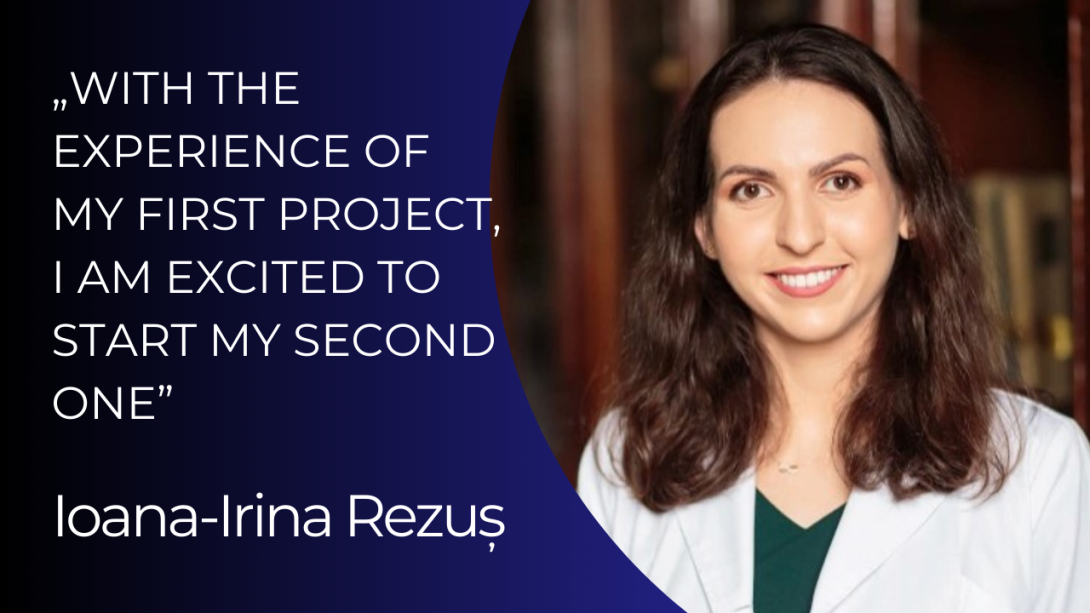
The results of her research could improve pain management for patients with inoperable pancreatic cancer, and could also help to clarify how different imaging techniques perform in the detection and staging of pancreatic cancer. In May, Dr. Ioana-Irina Rezuș was named the Best First-Year Ph.D. Student at the Centre for Translational Medicine.
Dr. Rezuș has the opportunity to be a part of a joint bilateral Ph.D. program, which means she is a first-year Ph.D. student at Semmelweis University and also in her home city, at “Grigore T. Popa” University of Medicine and Pharmacy in Iași, Romania. Before enrolling in the CTM program, she had little knowledge about translational medicine, but she was curious to find out more. She thinks that CTM has really broadened her horizons and has realized how every little piece of research conducted somewhere could have a significant impact on healthcare worldwide.
Currently, Dr. Rezuș is working on two systematic reviews and meta-analyses. “I felt that the program was hard at the beginning, but now, with the experience of my first project, I am excited to start my second one, step by step. My first research is about different types of pain management for patients with inoperable pancreatic cancer. The manuscript of this study is ready to be submitted. Our results show that endoscopic ultrasound-guided celiac plexus neurolysis is more effective and safer compared to the standard opioid treatment and has some advantages over the percutaneous method, too. Further research should emphasize the need to perform it as early as possible in the treatment of these patients, maybe even multiple times. It is a field worth exploring, even if it is usually overshadowed because of the short life expectancy these patients have. My second research has just passed the feasibility phase. That is about how different imaging techniques perform in the detection and staging of pancreatic cancer.”
After spending the first year of her Ph.D. training in Budapest working on meta-analyses, Dr. Rezuș returned to Iași this July and started her medical imaging residency, while continuing her Ph.D. She hopes to be able to conduct an animal study in Romania in the later part of her Ph.D. training. “I'm looking forward to the next period, while I feel my last year was really a golden year in Budapest. I was able to dedicate a lot of time to research. I've also tried to get involved as much as possible in medical education, I've attended international radiology congresses, and I've taken every opportunity to improve my skills. I am grateful to Prof. Nemes and Dr. Sarkadi from the Heart Centre of Semmelweis University for allowing me to attend some of their interventional radiology sessions, which allowed me to be in touch with the hospital environment.
(Emese Szabó)